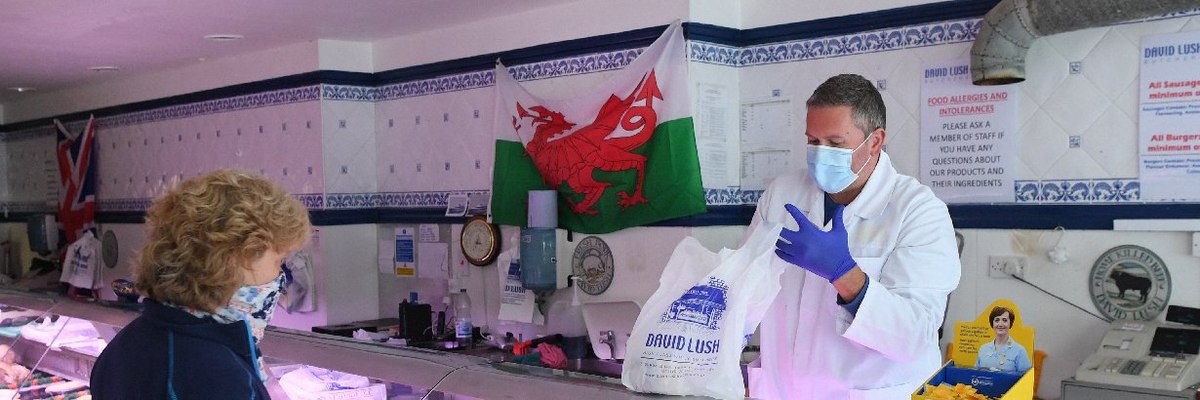The use of masks to slow the spread of COVID-19 is not mandatory in shops in Wales, unlike in Scotland and England
The results of three new YouGov surveys highlight how people in England, Scotland and Wales are reacting to coronavirus.
The single most notable difference between behaviour in the three nations is regarding face masks.
In Scotland three quarters (79%) of people said they had worn a face mask in the past two weeks. In England this figure was close to two thirds (65%). Yet in Wales just 43% said the same.
Personal behaviour between people in the three nations is otherwise largely the same – the only exception being that Welsh people are more likely to be actively avoiding contact with tourists (41%, vs 30% of English people and 33% of Scots).
The results show the impact that government rules have on public behaviour. Although in all three nations their use is required on public transport, in England and Scotland it is also mandatory to wear them in shops, unlike in Wales.
How much support is there for actions the government(s) could take?
The survey also asked people in all three nations which potential actions the government could take to combat COVID-19 they supported. Please note, Scots and Welsh people were asked about these policies within Scotland and Wales respectively, while English people were asked about adopting them in the UK as a whole.
English people prove noticeably less likely to support quarantining people and places. While 75-76% of Scottish and Welsh people support quarantining someone who had come into contact with a contaminated patient, this falls to 65% in England. Likewise, support in England for quarantining any location a contaminated patient has been stands at 30%, lower than in Scotland (39%) and Wales (43%).
They are also less likely to support quarantining people on flights to Britain (48%), compared to 55% of Scots who would quarantine people on flights to Scotland and 60% of Welsh people who would quarantine people on flights to Wales.
Generally speaking, Welsh people were the most likely to support any of the options the government could take. They are noticeably more likely than people in England and Scotland to support stopping all inbound flights (38%, vs 31% in Scotland and 27% in England) and temporarily closing schools (29% vs 21-22% in England and Scotland).
How is the fight against coronavirus going?
Almost two thirds (64%) of Welsh people said the coronavirus situation in Wales is getting better or completely over, compared to only 16% who thought it was getting worse.
Fully 80% of Scots believed the coronavirus situation was getting better or completely over, with just 8% thinking it was getting worse. Please note however, that fieldwork in Scotland was conducted in late July, prior to the outbreak in Aberdeen.
In England, however, the results are dramatically different. Only 38% think the coronavirus situation is getting better or completely over, compared to 45% who think it is getting worse. Please note that, again, English people were asked this about the UK as a whole rather than England specifically. Nevertheless, there is no reason to suspect that the results would be especially different had the question referred to England only.
Full tables coming shortly









